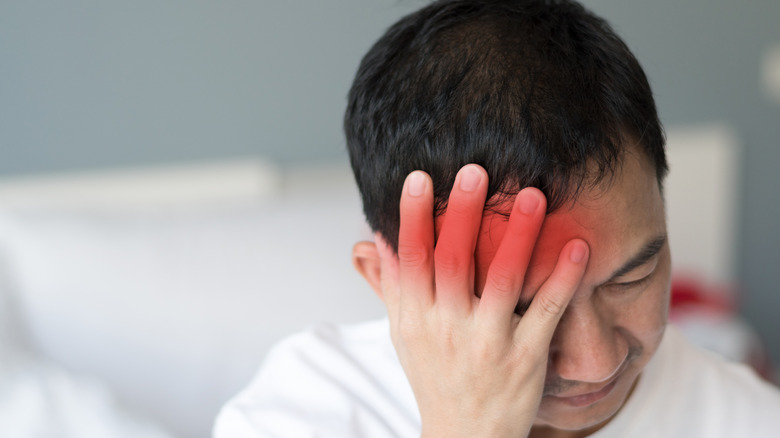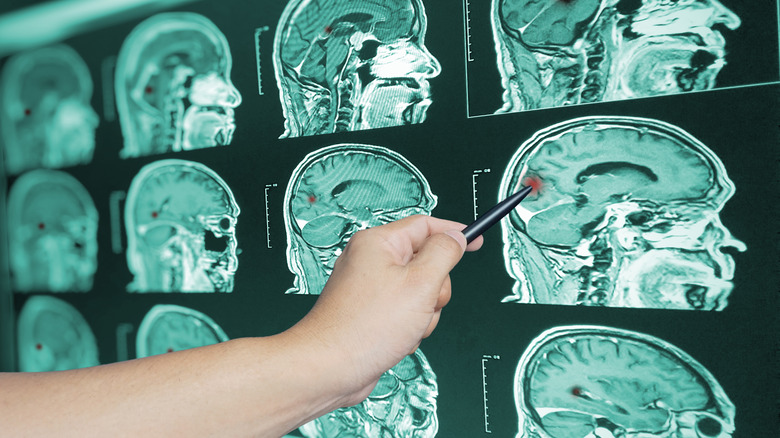This Is What You Should Do If You Think You Have A Concussion
It's hard to imagine anyone who hasn't suffered a pretty nasty knock on the head. Usually, these bumps ache for a bit, then clear up enough that we can forget about them. Sometimes, however, the issue seems to linger. It's when other symptoms show up that what we thought was a nasty bump or fall is actually something much more serious.
According to the Mayo Clinic, concussions present a number of symptoms ranging from ringing in the ears and "seeing stars" to vomiting, sleep issues, and slurred speech, among others. Children may experience even more alarming symptoms such as excessive crying, a dazed appearance, and seizures.
These symptoms are all a good indicator that it's time to go to the hospital, whether or not the fall or blow caused a loss of consciousness or if all symptoms are present. However, there are important steps to take before things reach that point because some symptoms may not manifest for a few hours or even a few days after the injury (via CDC). In these cases, it's good to have a response plan ready.
Keep an eye on odd symptoms
Before outlining what you should do if you suspect you or someone else has a concussion, there are a few urban legends that you will need to toss out. As outlined by Dr. Richard Figler, M.D., a primary care sports medicine physician with the Cleveland Clinic, waking someone up after they suffer a head wound isn't necessary. It may even be counterproductive to their healing process since concussion treatment often includes a great deal of rest. Dr. Figler makes it clear that falling asleep after a concussion will not push someone into a coma, another popular urban myth surrounding concussions.
With this in mind, the most important first step in monitoring a potential concussion is to track symptoms within 24 hours and go to the ER if they worsen. The Mayo Clinic says that this is especially important for children and to seek help within one to two days if someone with a possible concussion is vomiting, has a headache that worsens over time, or if they are leaking fluid (which may or may not be blood) from their nose or ears. Lasting dizziness, ringing in the ears, and behavioral changes are also indications that it is time to get urgent attention.
The first 24 hours are the most critical when monitoring for a concussion. According to Healthline, a person that may have experienced a concussion should not drive a vehicle, operate machinery, and not be left alone during this crucial period, as they may lose consciousness or have slower reaction times. In addition to observation, rest and avoiding reinjury are the most important factors when dealing with a potential concussion.


